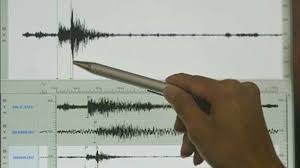
Just as scientists studied earthquakes in Oklahoma and blamed the surge in seismic activity on oil and gas wells and disposal wells, another new study is making a similar claim of earthquake activity in the Eagle Ford Shale of South Texas.
The study by researchers with Miami University in Ohio and the U.S. Geological Survey claimed earthquakes caused by hydraulic fracturing in the Eagle Ford are more common than previously thought. The claim came after a review of more than 2,800 earthquakes in the Shale Play between 2014 and 2018 according to a report by the Houston Chronicle.
In a recently published study, the researchers revealed that more than 2,400 of those earthquakes could be linked to hydraulic fracturing activity and that certain industry practices were more likely to trigger them.
Earthquakes were twice as likely to happen when operators simultaneously injected fluids into multiple nearby wells compared to when they injected fluids into multiple wells one at a time, the researchers determined.
Out of the 2,823 earthquakes analyzed in the study, only 121 of them registered above a magnitude 2.0 on the Richter Scale, which would have been strong enough to be felt by some close to the epicenter.
The Miami University study was released a month after researchers with the University of Texas at Austin published a study that linked hydraulic fracturing to some earthquakes in the Permian Basin of West Texas.
Previous studies blamed the shale play earthquakes on an industry practice of injecting oil field wastewater deep underground. Those studies prompted the Railroad Commission of Texas, the state agency that regulates the oil and natural gas industry, to enact stricter rules and regulations for saltwater disposal wells.
Favoring regulations based on science, Texas Oil & Gas Association President Todd Staples said his organization created a committee that allows members to work with seismologists, geologists and regulators to address the issue of earthquakes.
“The oil and natural gas industry is actively working to mitigate impact through recommended practices including pre-completion risk assessment, proper monitoring, and mitigation protocols,” Staples said in a statement.
Source: Houston Chronicle





